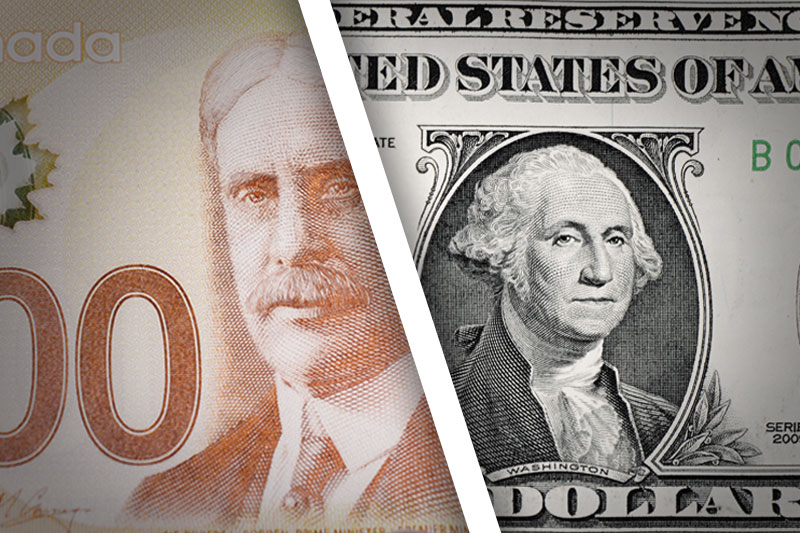Investing.com - The U.S. dollar slipped lower against the Canadian dollar on Tuesday after Federal Reserve Chair Janet Yellen reassured investors that the central bank intends to keep interest rates low for an extended period.
USD/CAD touched session lows of 1.1030 and was last down 0.08% to 1.1040.
The pair was likely to find support at 1.1001, Monday’s low and resistance at 1.1068, the session high.
The U.S. dollar weakened slightly after Ms. Yellen said Monday that “considerable slack” still remained in the U.S. labor market and reiterated that the Fed’s commitment to economic stimulus will still be needed for some time.
Overall market sentiment continued to be underpinned by hopes that China will implement fresh stimulus measures to shore up the cooling economy.
In Canada, data on Tuesday showed that Canadian producer price inflation jumped in February as higher fuel prices and a weaker Canadian dollar pushed prices up.
Statistics Canada reported that the raw materials purchase price index rose 5.7% in February, ahead of expectations for a 2.3% gain, as crude oil prices spiked higher.
The industrial product price index rose 1.0%, beating expectations for a 0.7% increase. Energy and petroleum product prices climbed 2.4% in February, as gasoline and diesel fuel prices jumped.
The report said that the 1.0% decrease in the value of the Canadian dollar against the U.S. dollar in February may have had the effect of increasing the IPPI. Without the measurable effect of the exchange rate, the index would have risen 0.8% instead of 1.0%.
Elsewhere, the loonie, as the Canadian dollar is also known, was lower against the euro, with EUR/CAD rising 0.19% to 1.5244.
The euro remained supported after data on Tuesday showed that the euro zone factory sector continued to expand last month, but at a lower rate than February. However, average input costs declined for the second straight month and output prices also dipped, adding to pressure on the European Central Bank to implement fresh policy measures to stave off the threat of deflation in the region.
A separate report showed that the euro zone unemployment rate was 11.9% in February, compared to expectations for 12.0%.
